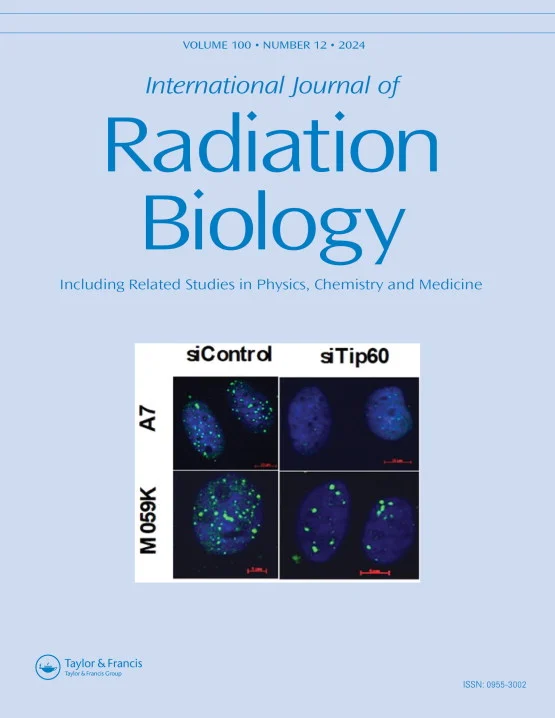免疫放射治疗的分子基础。
IF 2.4
4区 医学
Q2 BIOLOGY
引用次数: 6
摘要
目的:放射治疗(RT)和免疫治疗是有效的抗肿瘤治疗方式。实验研究表明,RT的细胞毒性作用与免疫系统之间存在重要的相互作用。本综述综述了抗肿瘤免疫的基础知识,并着重讨论了RT和免疫抗肿瘤反应之间相互作用的机制,这些机制奠定了免疫RT的分子基础。结论:放射治疗后可实现模拟肿瘤休眠的“免疫获得性平衡”,当免疫细胞的细胞毒性作用或肿瘤增殖率分别占主导地位时,平衡向肿瘤根除或再生转移。RT同时具有免疫抑制和免疫增强的特性。后一种效果也被称为放射性疫苗接种。其机制涉及上调或下调膜分子,如PD-L1、hla - i类、CD80/86、CD47和Fas/CD95,这些膜分子在免疫检查点途径中发挥重要作用,并增加肿瘤或免疫细胞的细胞因子表达(如INFα、β、γ、IL1、2和TNFα)。此外,辐射与肿瘤微环境(成纤维细胞、肿瘤浸润淋巴细胞、单核细胞和树突状细胞)的相互作用也是放射性疫苗接种的重要组成部分。因此,RT可能具有抗肿瘤疫苗的特性,其后遗症可以被免疫疗法药物利用来有效治疗不同的癌症亚型。本文章由计算机程序翻译,如有差异,请以英文原文为准。
The molecular basis of immuno-radiotherapy.
Abstract Purpose Radiotherapy (RT) and immunotherapy are powerful anti-tumor treatment modalities. Experimental research has demonstrated an important interplay between the cytotoxic effects of RT and the immune system. This systematic review provides an overview of the basics of anti-tumor immunity and focuses on the mechanisms underlying the interplay between RT and immune anti-tumor response that set the molecular basis of immuno-RT. Conclusions An ‘immunity acquired equilibrium’ mimicking tumor dormancy can be achieved post-irradiation treatment, with the balance shifted toward tumor eradication or regrowth when immune cells’ cytotoxic effects or cancer proliferation rate prevail, respectively. RT has both immunosuppressive and immune-enhancing properties. The latter effect is also known as radio-vaccination. Its mechanisms involve up- or down-regulation of membrane molecules, such as PD-L1, HLA-class-I, CD80/86, CD47, and Fas/CD95, that play a vital role in immune checkpoint pathways and increased cytokine expression (e.g. INFα,β,γ, IL1,2, and TNFα) by cancer or immune cells. Moreover, the interactions of radiation with the tumor microenvironment (fibroblasts, tumor-infiltrating lymphocytes, monocytes, and dendritic cells are also an important component of radio-vaccination. Thus, RT may have anti-tumor vaccine properties, whose sequels can be exploited by immunotherapy agents to treat different cancer subtypes effectively. Graphical Abstract
求助全文
通过发布文献求助,成功后即可免费获取论文全文。
去求助
来源期刊
CiteScore
5.00
自引率
11.50%
发文量
142
审稿时长
3 months
期刊介绍:
The International Journal of Radiation Biology publishes original papers, reviews, current topic articles, technical notes/reports, and meeting reports on the effects of ionizing, UV and visible radiation, accelerated particles, electromagnetic fields, ultrasound, heat and related modalities. The focus is on the biological effects of such radiations: from radiation chemistry to the spectrum of responses of living organisms and underlying mechanisms, including genetic abnormalities, repair phenomena, cell death, dose modifying agents and tissue responses. Application of basic studies to medical uses of radiation extends the coverage to practical problems such as physical and chemical adjuvants which improve the effectiveness of radiation in cancer therapy. Assessment of the hazards of low doses of radiation is also considered.

 求助内容:
求助内容: 应助结果提醒方式:
应助结果提醒方式:


